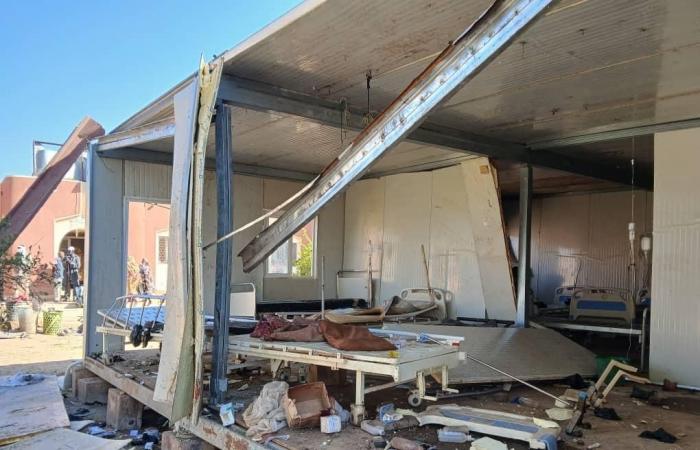A worsening crisis in Zamzam
In the grip of a serious nutritional crisis, the Zamzam camp, which housed around 450,000 displaced people in North Darfur, has been under almost daily bombardment by the Rapid Support Forces (RSF) since December 1. Nearly fifty injured people, including elderly people and very young children, were treated by MSF medical teams. These patients are received in our hospital initially intended for pediatric and maternal care, far from being adapted to the needs of traumatology.
In addition to the injured and direct victims of these bombings, at least 38 dead according to our teams and local sources, there is a more insidious threat: the deterioration of security leads to a reduction in food and humanitarian aid which reached the population of a way that has already been limited and insufficient for many months.
At the end of November, a first convoy from the World Food Program finally reached the Zamzam camp, where MSF has been warning of the catastrophic scale of malnutrition since February. This delivery of food aid came after months of blockage, in particular because the Rapid Support Forces control most of the supply routes and are opposed to the supply of the El Fasher region and its surroundings, including the camp of Zamzam, which remain under the control of the Sudanese armed forces and a coalition of armed groups. But the latest developments risk cutting short what should have been the start of a massive and sustained response to the affected populations of Zamzam, with much uncertainty to date over the fate of the next food aid convoys from the UN agencies.
Senegal






